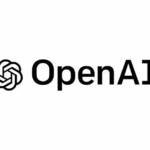Meta is preparing to launch its next-generation artificial intelligence model, Llama 4, using what CEO Mark Zuckerberg describes as unprecedented computing power. During a recent earnings call, Zuckerberg revealed that the model is being trained on a GPU cluster containing more than 100,000 Nvidia H100 chips, comparable only to the Colossus data center used by xAI’s to train Grok.
The development of Llama 4 is well underway, with smaller versions of the model expected to be released in early 2025. According to Zuckerberg, the new model will feature enhanced capabilities including “new modalities, stronger reasoning, and much faster” performance compared to its predecessors.
The massive scale of Meta’s AI training operation presents significant technical and environmental challenges. Industry estimates suggest that a cluster of 100,000 H100 chips would require approximately 150 megawatts of power – five times more than the largest national lab supercomputer in the United States.
To support this ambitious AI development, Meta plans to increase its capital expenditure significantly. The company expects to spend up to $40 billion this year on data centers and infrastructure, representing a more than 42 percent increase from 2023, with further growth anticipated next year.
Meta’s AI strategy differs notably from its competitors through its open-source approach. While companies like OpenAI and Google maintain proprietary systems, Meta makes its Llama models available for free download, although with some commercial use restrictions.
The company’s AI initiatives are showing promising results in its core business. Meta reported that over 500 million people use Meta AI monthly across its various platforms, including Facebook, Instagram, and WhatsApp. The technology has also boosted advertising effectiveness, with one million advertisers utilizing Meta’s generative AI tools for ad creation.
Despite the substantial investments in AI development, Meta’s financial performance remains strong. The company’s total sales have increased by more than 22 percent, maintaining healthy profit margins even as it directs billions toward Llama development.
The announcement comes as other major tech companies advance their own AI projects. OpenAI is developing GPT-5, while Google is working on new versions of its Gemini AI models. However, Meta’s massive computing infrastructure investment suggests an escalation in the race for AI capability advancement.
Some AI experts have expressed concerns about Meta’s open-source strategy, warning that making powerful AI models freely available could potentially enable malicious uses, such as cyberattacks or the design of harmful weapons. However, Zuckerberg remains committed to this approach, stating that open-source solutions will prove the most cost-effective, customizable, and trustworthy options for developers.






